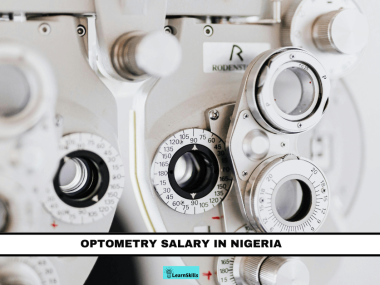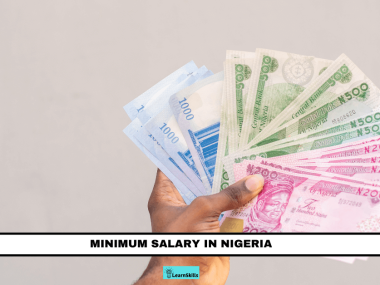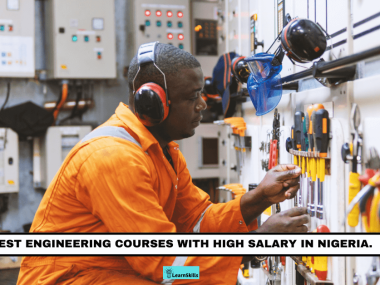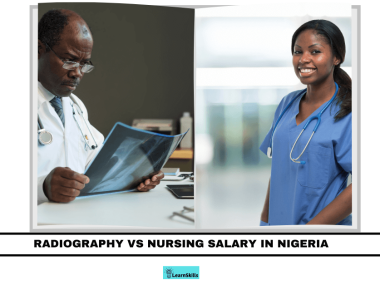Underwater welding is a skilled profession that combines diving and welding tasks in the oil and gas industry. The demand for underwater welders in Nigeria is growing, leading to competitive salaries.
The average salary for underwater welders in Nigeria can be quite attractive. Experienced professionals earn significantly more than entry-level workers.
If you’re considering a career in underwater welding, you must know your expected income. Your earnings will vary based on experience, location, and the specific company you work for.
As you explore this exciting career, you must understand the earning potential and job opportunities that will help you. The underwater welding profession offers a chance to work in unique environments and unlocks the door to high earning potential in Nigeria’s job market.
Understanding Underwater Welding
Underwater welding is a specialized field that combines diving and welding skills. This work often takes place in challenging underwater conditions. It’s important to know the basics and the safety measures as you consider this career.
The Basics of Underwater Welding
Underwater welding involves two main types: wet welding and dry welding.
Wet Welding: This method uses traditional welding techniques while fully submerged. It is cost-effective but has challenges, such as gas bubbles affecting visibility and weld quality.
Dry Welding: This requires using a dry habitat or hyperbaric chamber. It provides a controlled environment allowing for more precise welding.
Both methods require specialized equipment like diving suits, helmets, and welding gear. Factors like depth and water temperature can influence the choice of method.
Generally, underwater welders work on structures like pipelines, dams, and ships.
Safety and Risks
Safety is crucial in underwater welding due to the numerous risks involved. Electric shock is a significant danger when using welding equipment underwater. Proper insulation and equipment maintenance are vital to prevent accidents.
Additionally, dive-related injuries, such as decompression sickness, can occur. You need training in both welding and diving to recognize and manage these risks.
Welders must be conscious of their surroundings, as currents and visibility can change rapidly. Following safety protocols can reduce risks and ensure a safer work environment.
Qualifications and Certifications
To work as an underwater welder in Nigeria, you need specific certifications and training in both diving and welding. These qualifications prepare you for the technical and safety demands of underwater work.
Diving Certifications
Before diving into underwater welding, you must obtain diving certifications. The most recognized certification is from the American Welding Society (AWS). This certification ensures you have the necessary skills to operate safely underwater.
Typical diving programs include commercial diving basics and advanced techniques. You will learn about safety protocols, equipment handling, and emergency procedures. Additional credentials, such as the International Diving Schools, can enhance your qualifications.
Welding Certifications
Welding certifications are crucial for your career. The International Institute of Welding (IIW) offers various certifications tailored for professionals. These include the Certified Welding Inspector (CWI) and Certified Welding Educator (CWE).
Skilled professionals typically focus on certifications related to underwater welding. Completing a specialized program helps you stand out in the competitive field.
Be sure to keep your certifications updated, as this enhances your job prospects and salary potential.
Education and Training
Formal education in welding is beneficial for aspiring underwater welders. Many pathways include technical colleges and specialized trade schools. These programs often cover welding techniques, metallurgy, and safety standards.
Training programs in Nigeria focus on both theoretical and hands-on learning. You can expect to learn about different welding methods, such as shielded metal arc welding and gas tungsten arc welding. Gaining experience through internships or apprenticeships is also essential.
Apply to recognized institutions by professional organizations. These institutions often offer courses that lead to certifications, boosting your employability in the field.
Career and Salary Insights
Understanding the career landscape for underwater welders in Nigeria includes looking at salary factors, career growth, and the job market. This knowledge can help you make informed decisions about your career path.
Factors Influencing Salary
Several factors affect the salary of underwater welders in Nigeria. Your experience level plays a significant role. Entry-level welders can expect to earn less than those with several years in the field.
Certifications also impact pay. Specialized training can lead to higher earnings. Additionally, the type of welding jobs you take on can vary your income. Underwater welders often earn more than those in regular welding roles due to the risks involved.
Location matters. Salaries can differ based on demand in various regions. For example, welders in coastal areas may earn more because underwater welding jobs are in higher demand there.
Career Path and Advancement
The career path for underwater welders can be promising. Starting as an entry-level welder, you can gradually advance to more specialized roles. With experience, you may become an experienced welder, which typically brings higher pay.
Career progression could also lead to higher roles such as welding inspector or supervisor. These positions usually come with more responsibilities and better salary prospects.
Continuous learning and obtaining additional certifications can enhance your job opportunities. Networking within the industry can also open doors. Many skilled underwater welders find better jobs through connections.
Job Market in Nigeria
The job market for underwater welders in Nigeria is evolving. As industries such as oil and gas grow, the demand for skilled welders increases.
Many companies seek qualified underwater welders to handle specialized tasks. As a result, your earning potential as an underwater welder can be significant, especially in high-demand sectors.
Despite the competition, skilled welders have good opportunities. Staying up-to-date with industry trends and continuing education can be critical. Many welding jobs in Nigeria offer great growth potential, making this field an appealing option.
Regional Economic Impact
The underwater welding industry plays a vital role in Nigeria’s economy. This section discusses the importance of underwater welding in the region and provides a comparative analysis of salaries within this field.
Importance of Underwater Welding in Nigeria
Underwater welding is crucial for maintaining various underwater structures, such as oil rigs, pipelines, and bridges. These projects support Nigeria’s economy, especially in the oil and gas sector, where many underwater structures require regular maintenance.
As a commercial diver, you help ensure the safety and efficiency of these essential structures. You protect vital resources and also support local job growth and economic stability.
Investing in welding equipment and training for divers strengthens the workforce, allowing Nigeria to compete globally in the maritime industry.
Comparative Salary Analysis
In 2025, the Nigeria average salary for a welder is ₦1,179,162. However, underwater welders, due to their specialized skills, can earn significantly more.
For instance, entry-level underwater welders may start their careers earning between $30,000 and $40,000 per year. With experience, this can rise to $80,000 or more.
This salary range highlights the demand for skilled workers and emphasizes economic opportunities in the maritime sector.
Geographic location also impacts salaries. Areas with a high concentration of oil and gas companies tend to offer better pay. By enhancing your skills and the local workforce, Nigeria can improve its position in the global market.










